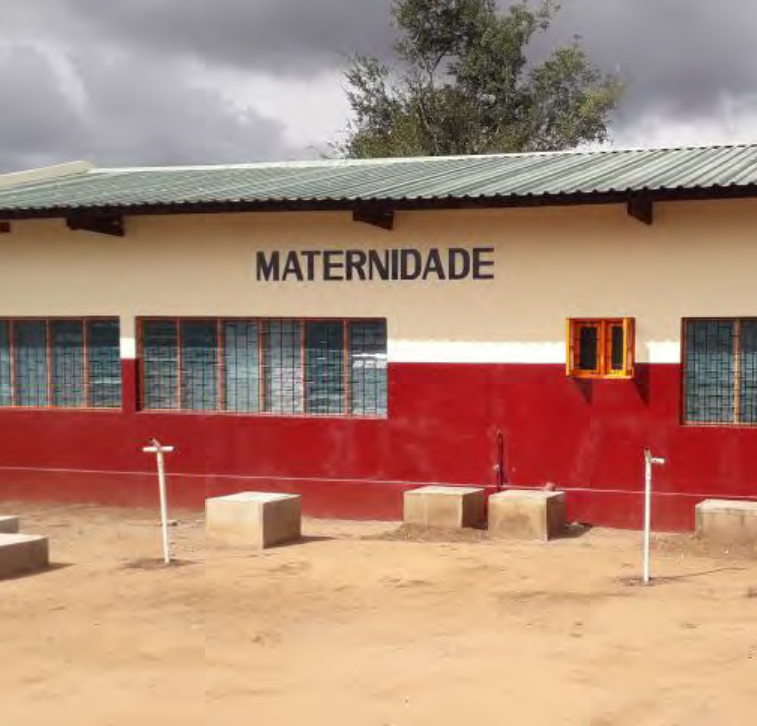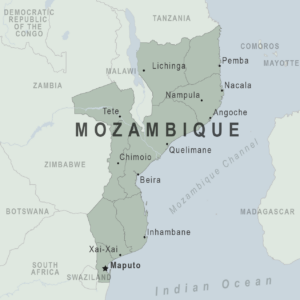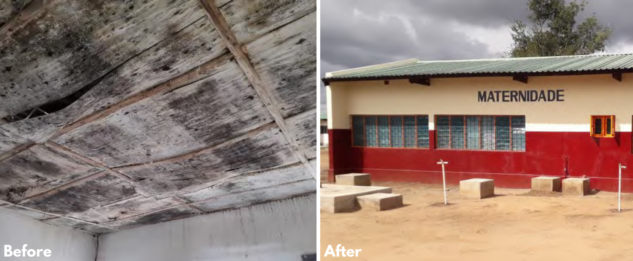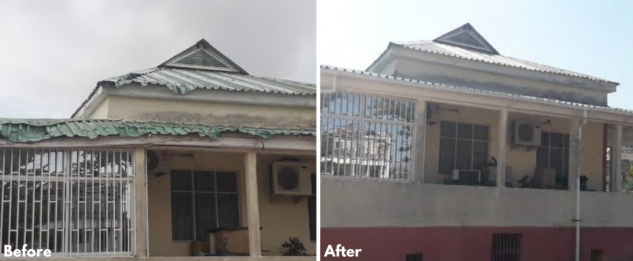Health Alliance International

“Natural disasters create vulnerability in individuals, which means that communities are at high risk of contracting disease. Many people were left without their homes, which conditioned the allocation of people in accommodation centers [meant to be] safe areas, but on the other hand, all sanitary conditions were not created.” – Mr. Caetano Topolas, Clinical Psychologist, Macurungo Urban Health Center
Cyclone Idai, the third deadliest cyclone to hit the Southern hemisphere, struck the central provinces of Mozambique in March 2019. Its 100+ mph winds and sustained rain destroyed roads, bridges and critical public health infrastructure, and damaged an estimated 240,000 homes throughout the region.
In response to this devastating storm, the Center for Disaster Philanthropy (CDP) awarded a grant from the CDP Global Recovery Fund to Health Alliance International (HAI). The grant supported the repair, restoration, and strengthening of local and regional health clinics and networks.
After the storm, food shortages, lack of clean water and overcrowded shelters presented new epidemiologic threats that compounded the impact of the disaster on the people of Mozambique. According to HAI, “in the month following the cyclone, more than 4,000 cases of cholera were identified in Mozambique’s central region, cases of malaria and diarrheal disease climbed, and even a few cases of typhoid were detected.”
Mozambique’s National Health System has trained epidemiologists, but the expertise was concentrated in Mozambique’s capital city, Maputo, about 16 hours by car from Beira, where the cyclone made landfall. HAI and their local partners realized that local training could expedite and improve the epidemiologic response, like tracking and identifying disease outbreaks, in the cyclone-prone region.

“A quick response is always crucial to mitigate the volume of [epidemiologic] events. If we had a capable team with sufficient knowledge and skills to deal with an outbreak and other possible disease situations in communities far from the central team, we [would be better positioned to implement] mitigating actions pending more specialized responses proposed by the central team.” – Mr. Ivo Avelino, Scientific Committee Coordinator of the Sofala Provincial Research Center
In December 2019, HAI launched Project SPEED (Strengthening Provincial-level Epidemiologic Expertise for Disaster response), a collaboration with Beira Operational Research Center (CIOB) and CDP. One key goal of the project was to build epidemiologic surveillance capacity at the regional level in Central Mozambique.
Over the course of Project SPEED, 31 public health professionals from the Beira Operations Research Center, Sofala Provincial Health Directorate, Beira Central Hospital, and the Beira and Chimoio city Health Directorates received training in Epidemiologic and Active Surveillance and Investigation of Outbreaks and Activation of Rapid Response Teams. Twenty-two of those went on to receive additional training in advanced statistical data analysis.
The program quickly proved to be beneficial. When the COVID-19 pandemic hit in 2020, the trainings enabled CIOB to carry out COVID-19 surveillance confidently and independently in four Mozambican provinces, covering a population of 12 million.

As part of Project SPEED, CDP funding also supported infrastructural upgrades and repairs of CIOB and Chirassicua, a rural health facility in the district of Nhamatandahe. The rehabilitation work at CIOB consisted of repairing the roof, minor but impactful repair of the building’s plumbing system, and reconstruction of damaged areas of the perimeter fence. The entire building is now fully weather-proofed with a reinforced roof that will help limit damage in the event of future storms. The project at Chirassicua included restoration of the maternity ward, a covered walkway and the out-patient consultations ward.

In total, 16,024 people in the catchment area of Chirassicua health facility, 1.5 million people in Sofala province, 2.6 million in Tete province and 1.9 million in Manica province (public health surveillance area for CIOB) benefited from Project SPEED.
CDP is proud to support HAI’s efforts to repair vital health facilities and strengthen regional public health surveillance capacity to enable communities to respond quickly and effectively to disease outbreaks following natural or epidemiological disasters.